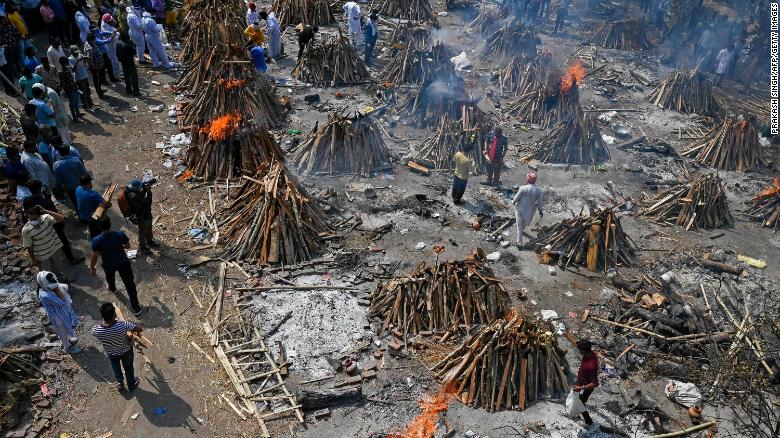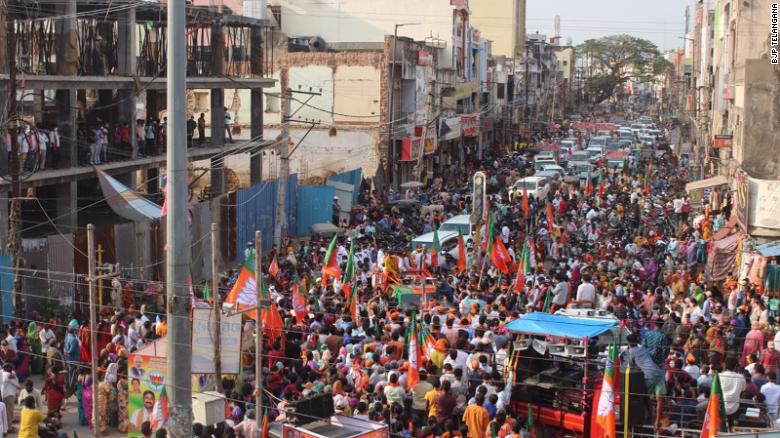Beyond the risk of new variants, India's second wave of cases presents another, more immediate problem for the world.
The country is a major player in COVAX, the global vaccine-sharing initiative that provides discounted or free doses for lower-income countries.
India promised to supply 200 million COVAX doses that are being distributed to 92 poor countries. But its own rapidly worsening situation has prompted Delhi to shift focus from COVAX to
prioritizing India's own citizens.
The Serum Institute of India (SII) had already delivered 28 million doses of the AstraZeneca vaccine, COVAX said in a statement in March, but was due to ship another 90 million doses in March and April.
Those deliveries would be delayed, it warned, due to rising demand within India.
"I don't think the global leadership has woken up to the scenario of how bad this delay can be for the world," said Shruti Rajagopalan, a Senior Research Fellow at the Mercatus Center at George Mason University.
The moment India is short on vaccines and keeps its supplies for domestic purposes, it means other countries like South Africa and Brazil have to wait, she said. "You're delaying the world getting vaccinated by many months," Shruti added.
John Nkengasong, the director of Africa's disease control body, warned earlier this month that India's hold on exports could be "catastrophic" for the continent's vaccine rollout.
Despite the disruption of Indian supplies, COVAX
said it was on track to deliver all scheduled doses in the first half of this year, and by the end of the year expects to provide two billion doses.
The Indian experience underscored the importance of diversifying the supply chain, and COVAX was trying to make deals with more vaccine manufacturers, which would be announce soon, it said.

























No comments:
Post a Comment